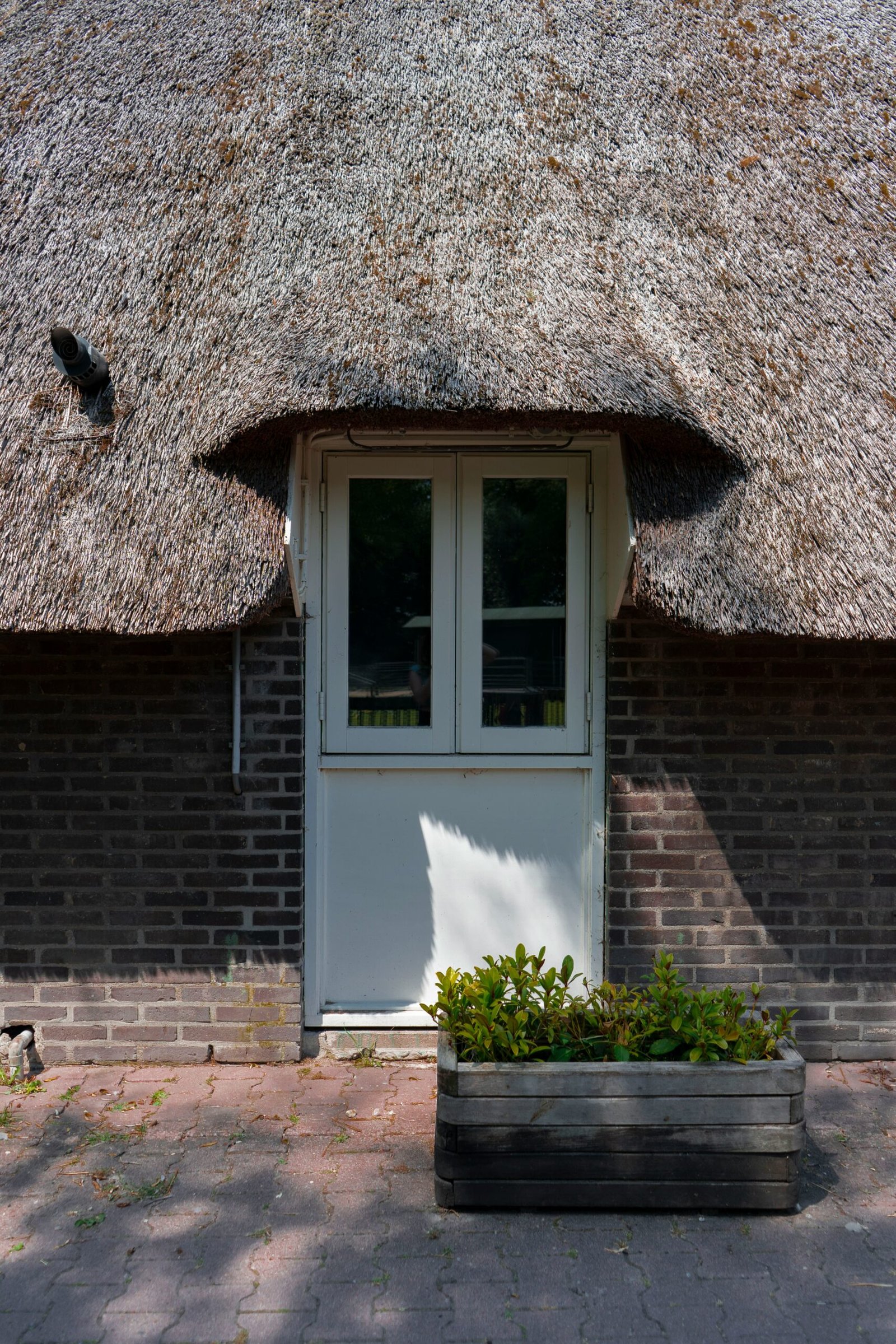Introduction to Benjamin’s Curiosity
Benjamin is a historian whose enthusiasm for the past transcends the typical boundaries of academic inquiry. Raised in a small town surrounded by relics of bygone eras, he developed an early fascination with history, often exploring local archives and engaging with older generations to unearth untold stories. His inquisitive nature is not solely limited to well-documented events; rather, it drives him to seek out the overshadowed narratives that often escape mainstream discourse. Benjamin’s enthrallment with forgotten histories has led him on an extraordinary journey through time, characterized by extraordinary discoveries and a quest for knowledge.
Throughout his academic career, Benjamin honed his skills in research methodology and critical analysis. He pursued his education at a prominent university, where he immersed himself in various historical periods, focusing particularly on the socio-political dynamics that have shaped civilizations. His interdisciplinary approach, often combining archaeology, anthropology, and archival research, enables Benjamin to illuminate facets of history that many overlook. This holistic perspective not only enhances his understanding but also fuels a perpetual desire to delve deeper into the past.
What sets Benjamin apart is his relentless pursuit of hidden narratives. He is driven by a belief that every object, document, and artifact holds a story waiting to be unveiled. This conviction empowers him to seek out lost treasures, often prompting him to venture into the archives of forgotten temples, abandoned estates, and neglected libraries. His insatiable curiosity and profound respect for historical authenticity lead him to explore remote regions and engage with local historians and custodians of tradition, ensuring that no stone is left unturned in the pursuit of knowledge.
The Discovery of the Hidden Chamber
As Benjamin combed through the dusty archives of the old manor, he often found himself lost in the annals of history, his fingers tracing the delicate filigree on ancient documents. One fateful afternoon, while examining an unusually tattered map, he noticed that one of the rooms in the building was circled with a faint ink mark. Curiosity piqued, he decided to investigate further. Following the carefully drawn path outlined on the map, he maneuvered through narrow corridors and creaking staircases, drawn by an inexplicable urge to uncover what lay beneath the mansion’s storied past.
At last, Benjamin arrived at a seemingly nondescript wall at the end of a dimly lit corridor. The atmosphere grew heavier, thick with an unspoken secret. As he pressed against the cool stone, a hidden latch clicked, revealing a narrow entryway. With his heart racing, he squeezed through the aperture into a surprisingly expansive chamber that seemed untouched by time itself. Cobwebs draped like tattered curtains from the high ceiling, while the air was thick with the scent of old wood and dust. The oppressive silence felt almost reverent, as if the space held its breath in anticipation of Benjamin’s arrival.
In the center of the chamber stood an intricately crafted clock, unlike anything he had ever seen. Its face was adorned with symbols and etchings that conveyed a sense of otherworldliness, suggesting it was far more than a mere timekeeping device. The clock radiated an eerie glow, pulsing gently like a heartbeat. This unique artifact captivated Benjamin’s attention; he could tell that it held secrets of time manipulation, potentially allowing him to revisit moments lost to history. His academic instinct ignited, and he began to ponder the implications of such a discovery on his research and understanding of time itself.
Understanding the Power of the Clock
Benjamin’s journey into the realm of time began with a simple fascination with clocks and their mechanical precision. Initially, he viewed the clock merely as a tool for measuring time, but as he delved deeper into the intricacies of its workings, he discovered its profound potential. The moment Benjamin realized that this clock held the capability to manipulate time, a new understanding emerged — one that could alter the very fabric of historical events. This revelation not only fascinated him but also filled him with a sense of urgency and responsibility.
As a historian, Benjamin often reflected upon pivotal moments in history, events that had shaped societies for better or worse. The clock now presented him with an ethical quandary: should he intervene in these moments to rewrite history? The weight of such a decision was monumental. For instance, Benjamin thought about the ramifications of altering the outcome of the Civil Rights Movement. Would a slight alteration in timeline prevent years of injustice and suffering, or would it lead to unforeseen consequences that could further entrench societal divisions?
Other historical events that intrigued him included preventing the sinking of the Titanic, a disaster that claimed thousands of lives, and eradicating the atrocities of World War II. Each thought was fraught with moral implications. Was he qualified to decide which of these events deserved to be changed? What kind of tyrant would he be to impose his will on the past? Benjamin’s motivations stemmed not from a desire for personal gain, but from a heartfelt wish to right historical wrongs and alleviate human suffering, showcasing the daunting yet compelling responsibility that came with his newfound knowledge of time manipulation.
First Attempts at Changing History
Benjamin’s journey into the realm of time manipulation began with a sense of reckless curiosity. Armed with the enigmatic clock, he felt an unprecedented power coursing through him—a power that not only excited his intellect but also stirred an inner turmoil. His initial target was a significant historical event: the signing of the Declaration of Independence. Benjamin believed that by delaying this pivotal moment, he might steer the fledgling nation toward a more collaborative approach among its founding fathers.
He activated the timepiece and, in a blink, stood amid heated discussions in Philadelphia. However, the aftermath revealed chaos—disagreements escalated, preventing any resolution. The delegates, initially united, began to fracture under the weight of uncertainty and lack of direction. As Benjamin witnessed this disarray, a wave of doubt washed over him. The thrill he had felt moments before was replaced with an unsettling apprehension about the unintended consequences of his actions.
The very next attempt involved a more personal historical figure: Leonardo da Vinci. Benjamin wished to learn directly from the genius himself, and therefore, he sought to extend da Vinci’s life by a few years. Upon returning to his time, he felt an overwhelming sense of accomplishment. Yet, paradoxically, he discovered that many of da Vinci’s inventions and ideas began to fade, as the genius had been less motivated knowing he had extra time. This left Benjamin grappling with guilt for inadvertently stifling the competitive spirit that had driven da Vinci’s unparalleled creativity.
Each of these excursions reinforced Benjamin’s ambitions but simultaneously forged a realization—time is a complex web of intertwined destinies. His early experiences with altering history resulted not in triumph but in a profound understanding of the precarious balance that governs time. The excitement of his newfound abilities clashed with a growing awareness of the burdens they carried, leaving him to reconsider his role as a timekeeper.
Unintended Consequences
Throughout the journey of Benjamin, the historian, the act of altering history reveals itself to be a perilous endeavor. Initially driven by noble intentions, Benjamin’s attempts to change significant events soon uncover the complexities and ramifications of time manipulation. Each seemingly minor adjustment leads to ripple effects that affect not only the timeline he seeks to rectify but also the present he wishes to preserve.
A poignant example can be traced back to Benjamin’s decision to alter a pivotal moment in the lives of influential historical figures. By preventing a catastrophic decision made by a prominent leader, he inadvertently creates a power vacuum. This shift allows a more tyrannical regime to rise, which leads to not only widespread suffering but also a complete alteration of societal norms that he had aimed to uphold. The consequences of his intervention span generations, illustrating the fragility of human history.
Moreover, Benjamin’s attempts to mend personal tragedies in his own past yield similarly destructive results. His effort to prevent a loved one’s untimely death results in a chain of events where another individual, previously saved by this very person, succumbs to a fate far worse than death itself. This realization awakens Benjamin to the stark reality that the past, while often seen as a series of isolated incidents, is inexorably interconnected. Altering one thread can unravel the entire tapestry of time.
This growing awareness of the complexity of time weighs heavily on Benjamin as he grapples with the enormity of his choices. Each alteration not only reshapes history but also complicates present relationships, highlighting the intricate balance that exists within the continuum of time. He learns that the quest to amend perceived wrongs may yield unforeseen disasters, ultimately catalyzing a deeper understanding of the wisdom embedded in the natural flow of history.
The Wise Mentor’s Guidance
In the pursuit of understanding time’s intricate tapestry, Benjamin encounters a wise mentor whose influence becomes pivotal in shaping his journey. This seasoned historian, with an extensive background in temporal studies, embodies the essence of knowledge and insight. Their fortuitous meeting marks a turning point in Benjamin’s exploration of the complexities within historical narratives and the philosophical interpretations of time itself.
The mentor, possessing a calming presence and a sharp intellect, takes the time to cultivate a relationship built on mutual respect and curiosity. Through engaging discussions and thought-provoking exercises, the mentor encourages Benjamin to question not only the chronology of events but also the overarching themes that define human experiences through time. The wise mentor emphasizes that while past events are significant, it is crucial to comprehend how these moments resonate in the current reality.
One of the key insights shared by the mentor pertains to the fluid nature of time and its inherent relationship with history. They explain that time is not merely a linear sequence of occurrences but instead represents a continuum that weaves together past, present, and future. The mentor articulates that every action Benjamin takes reverberates through this continuum, affecting not only the context he studies but also raising ethical considerations regarding his interpretations and representations of historical figures and events.
Furthermore, the mentor instills in Benjamin the importance of the present moment—an understanding that ignoring current implications risks repeating historical mistakes. This emphasis on mindfulness in historical practice encourages Benjamin to approach his studies with a reflective mindset, considering the societal impact of his findings. By analyzing the interconnectedness of time, history, and human behavior, Benjamin begins to appreciate the weight of responsibility that accompanies the quest for knowledge, aiding his evolution as a historian.
Appreciating the Present
Benjamin’s journey through time has been transformative, allowing him to navigate the intricate relationship between history and the present moment. In his introspection, he recognizes the profound teachings imparted by his mentor, emphasizing that history serves not merely as a repository of past events, but as a guiding force in understanding the present. This realization marks a notable shift in Benjamin’s perspective; he moves beyond the desire to alter events in history, learning instead to appreciate the wisdom derived from past experiences.
The lessons learned from historical triumphs and failures serve as valuable tools for contemporary life. Benjamin begins to see how the struggles and achievements of those who came before him lay the groundwork for current societal norms, values, and challenges. Embracing this understanding enables him to critically analyze the implications of decisions made in the past, fostering a deeper appreciation for the present moment. He comes to grasp that each decision, each action taken by individuals throughout history, contributes to the tapestry of what is now. Hence, this connection to history becomes crucial in navigating modern dilemmas.
Moreover, appreciating the present entails recognizing one’s role within the continuum of time. Benjamin learns to view himself as part of a larger narrative, where his actions, inspired by historical lessons, can inform decisions that influence the course of future events. This realization fosters a sense of responsibility and empowerment, as he understands that while the past cannot be changed, the present is ripe with opportunities for growth and improvement. The intricate dance between past, present, and future becomes clearer, allowing Benjamin to appreciate the significance of living fully in the present while carrying forward the lessons of history. This balance becomes his guiding principle, shaping his approach to both personal and academic endeavors.
A Final Decision
As Benjamin stood before the ancient clock, its hands frozen in time, he was enveloped by a whirlwind of emotions. The faint ticking of the clock echoed in his mind, reminding him of the immense power it held—the ability to reshape history, to mend past mistakes, and to alter the course of his life and the lives of others. Yet, with each tick of the clock—symbolic of time’s relentless march—he felt the weight of his impending decision pressing upon him. The allure of power beckoned, whispering promises of a perfect past, a life untainted by regret.
However, the deeper Benjamin delved into the implications of wielding such power, the more conflicted he became. He remembered the joyful moments of his present, the people he cherished, and the lessons life had bestowed upon him. Each experience, each struggle, had forged him into the historian he was today. The thought of reshaping history meant not only altering events but also erasing the beauty of growth and transformation that life offered. Would it be wise to risk everything he had learned for fleeting desires of perfection? The past held both triumph and turmoil, and he realized that every thread of history contributed to the rich tapestry of existence.
Sweeping over him was a profound sense of responsibility. Making a choice now could set off a cascade of reactions, reshaping not only his trajectory but that of countless others, potentially obliterating their stories without remorse. In that pivotal moment, Benjamin stood at a crossroads, grappling with the yearning to reach back into time while recognizing the invaluable nature of the present. It was then he understood: time’s true power lay not in manipulation but in embracing life as it unfolds. With newfound clarity, he prepared to make his final decision, one that honored both the lessons of history and the significance of the here and now.
Conclusion
Benjamin’s journey, marked by a tapestry of historical encounters and temporal reflections, offers profound insights into the significance of learning from the past. History serves as a repository of human experiences, encapsulating both triumphs and failures, and illuminating the intricate trajectory of societal development. As Benjamin navigated through various epochs, he found that the lessons embedded in historical narratives are not merely academic; they are integral to understanding the complexities of the human condition.
The inclination to erase painful chapters of history is often rooted in the desire to alleviate discomfort; however, such an approach neglects the invaluable teachings these experiences offer. Instead of attempting to sanitize history, embracing it with all its nuances allows for a more comprehensive understanding of current societal dynamics. By acknowledging past mistakes, individuals and communities can cultivate a greater awareness, fostering resilience and informed decision-making in the present and future.
Furthermore, Benjamin’s story underscores the pivotal role of historians in society. Historians act as custodians of narratives, painstakingly piecing together the threads of diverse human experiences. Their work not only preserves memories but also frames the context in which contemporary society operates. Through storytelling, historians breathe life into facts, transforming them into compelling narratives that resonate with audiences. This narrative craft becomes vital in connecting individuals with their collective pasts, ultimately fostering empathy and understanding across generations.
In essence, the exploration of history is not merely an academic endeavor; it is a necessary journey through time that equips humanity with the wisdom to navigate future challenges. As we reflect on Benjamin’s experiences, let us recognize the transformative power of embracing our history, ensuring that the lessons learned are integrated into our narratives moving forward.




















No Comments
Leave a comment Cancel